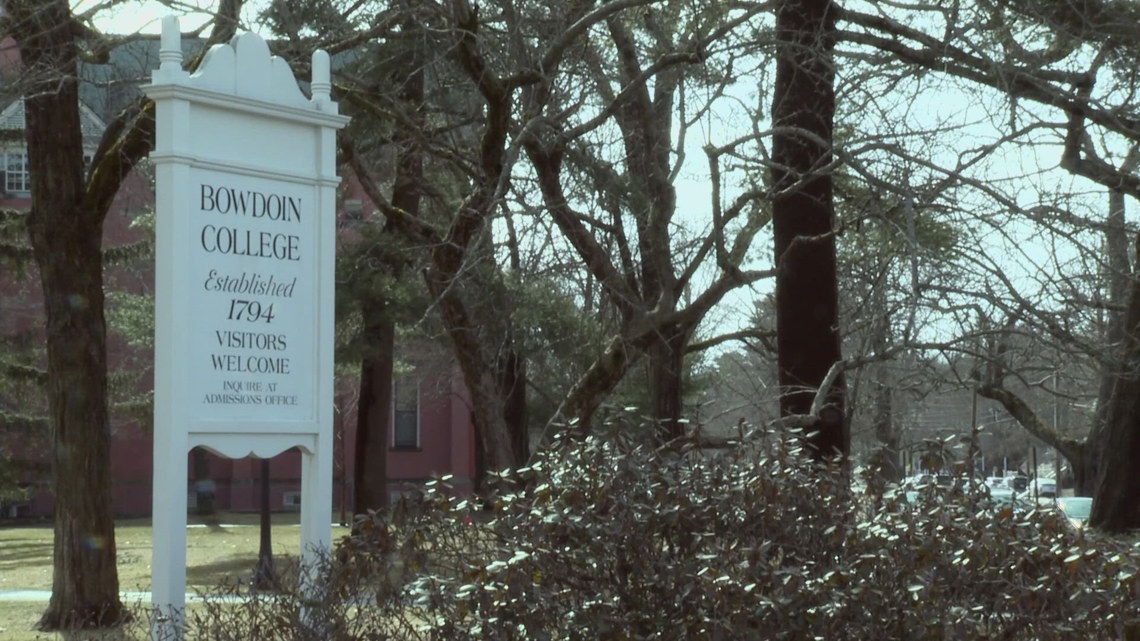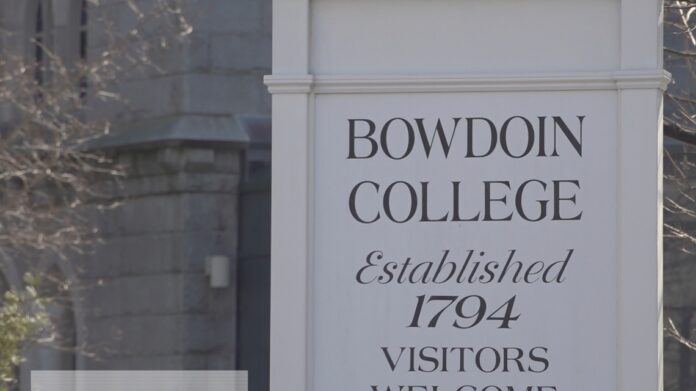In a groundbreaking move that’s poised to revolutionize the academic landscape, Reed Hastings, the co-founder of Netflix, has made a staggering $50 million donation to Bowdoin College. The generous gift will fuel a cutting-edge Artificial Intelligence (AI) initiative, marking a significant milestone in the institution’s quest to bridge the gap between innovation and education. As the lines between technology and academia continue to blur, this monumental investment promises to propel Bowdoin College to the forefront of AI research and development, paving the way for a new era of collaboration and discovery. But what exactly lies behind this extraordinary act of philanthropy, and what can we expect from this ambitious AI initiative?
Hastings’ Generous Gift to Bowdoin College
Hastings’ Background at Bowdoin

Reed Hastings, co-founder of Netflix, has made headlines again, this time for his generous donation of $50 million to his alma mater, Bowdoin College. Hastings, who graduated from Bowdoin in 1983 with a degree in mathematics, attributes much of his early academic and intellectual development to the rigorous and supportive environment provided by the college. His time at Bowdoin not only shaped his understanding of mathematics but also fostered a curiosity that would later propel him into the realm of artificial intelligence (AI).
After Bowdoin, Hastings pursued a master’s degree in AI at Stanford University, a move that marked the beginning of his deep dive into the field of technology. This transition from a liberal arts mathematics background to a specialized field like AI showcases the versatility and breadth of education that Bowdoin offers. The skills and knowledge he acquired during his undergraduate years provided a solid foundation, which he leveraged to develop groundbreaking technology at Netflix, transforming the entertainment industry.

The $50 Million Impact
The $50 million gift is not only the largest donation in Bowdoin’s history but also a monumental investment in the future of AI education and research. This financial influx is set to have immediate and long-term benefits for the college, leading to enhanced academic programs, advanced research facilities, and broader community engagement in the realm of AI. The donation will bolster Bowdoin’s ability to integrate AI into its curriculum, ensuring that students are well-equipped to navigate and influence the technology-driven landscape of the future.
Among the immediate impacts is the funding for new faculty positions and the development of specialized courses focused on AI and its ethical considerations. The long-term benefits include fostering a generation of graduates who are not only knowledgeable about AI but also committed to using technology responsibly and ethically.

Specifically, the initiative will focus on equipping students with the technical skills necessary to innovate in AI while fostering an understanding of the ethical implications of these innovations. Students will engage with real-world problems and solutions, developing a holistic view of AI’s role in society. This approach is crucial as AI becomes increasingly pervasive in our daily lives and industries.
Strategic Components
The strategic components of the Hastings Initiative include the recruitment and development of faculty members who are experts in AI and related fields, as well as the engagement of students in research and practical applications of AI. The initiative plans to hire 10 new faculty members across various disciplines, including computer science, ethics, philosophy, and social sciences, to ensure a comprehensive and interdisciplinary approach to AI education.
In addition to faculty recruitment, the initiative will support student engagement through fellowships, research opportunities, and symposia. These initiatives will provide hands-on experience and exposure to the latest trends and challenges in AI. The goal is to create a vibrant community of learners and educators who can collaborate and innovate together, driving forward both theoretical and applied research in AI.
Through this initiative, Bowdoin aims to produce graduates who are not only technologically savvy but also critically aware of the broader implications of their work. This blend of technical training and liberal arts education prepares students to engage with AI in a manner that is both innovative and socially responsible.
Ethical and Social Impact
Promoting ethical AI practices is a cornerstone of the Hastings Initiative. The initiative aims to equip students with the ethical frameworks needed to navigate the complex ethical dilemmas that arise with AI. This includes understanding the potential for bias in AI algorithms, the impact of AI on employment, and the broader societal and environmental implications of AI technologies.
Building a responsible AI community is another key outcome of this initiative. By fostering a culture of ethical responsibility and social consciousness, Bowdoin hopes to cultivate a generation of leaders who are mindful of the ethical dimensions of AI. This emphasis on ethical considerations is essential for ensuring that AI technologies are developed and deployed in a manner that benefits society at large, rather than exacerbating existing inequalities or creating new ones.
President Safa Zaki’s Vision
Aligning with Bowdoin’s Mission
Bowdoin College, a prestigious liberal arts institution, has received a significant boost from Netflix co-founder Reed Hastings, who has endowed the college with a $50 million grant. The contribution is earmarked for the Hastings Initiative for AI and Humanity, a program aimed at advancing the college’s commitment to the common good through the integration of artificial intelligence into its academic framework. President Safa Zaki, a cognitive scientist, sees this as an opportunity to strengthen Bowdoin’s core values through AI education. The initiative seeks to foster leadership in future technology and ethics, aligning with the college’s long-standing mission to cultivate wisdom and societal contribution.
To achieve this, the funding will enable Bowdoin to introduce new courses and research opportunities focused on the ethical implications and practical applications of AI. Zaki asserts that this initiative will not only enhance the curriculum but also provide students with a deeper understanding of how artificial intelligence can serve the greater good. The strategic vision is to create graduates who are not only technologically savvy but also ethically grounded, ensuring they can navigate the complexities of AI in the professional and societal spheres.
Future Directions and Potential
The future directions of the Hastings Initiative are ambitious and multifaceted. The college plans to expand AI research and collaboration, aiming to position itself as a leader in this emerging field. Initial plans include the recruitment of 10 new faculty members with expertise in AI and related areas. These new hires will join forces with current faculty to integrate AI into existing courses, thereby enhancing the educational experience and preparing students to meet global AI challenges.
Beyond the academic realm, the initiative will also facilitate public conversations and outreach programs. These efforts aim to engage the wider community in discussions around AI’s implications and potential. Zaki envisions the initiative as a catalyst not only for academic advancement but also for broader societal engagement. By fostering these dialogues, Bowdoin intends to contribute to the evolving discourse on AI and its impact on society.
Hastings’ Philanthropic Legacy
Supporting Education and Innovation
Reed Hastings, who graduated from Bowdoin in 1983 with a degree in mathematics, has a longstanding commitment to education and innovation. His philanthropic efforts extend beyond Bowdoin and include a range of initiatives that bolster public education and AI research. Hastings’ involvement with organizations such as the Knowledge Is Power Program (KIPP) and The City Fund underscores his dedication to educational equity and technological advancement.
His donation to Bowdoin is a testament to his belief in the transformative power of education and the importance of ethical AI development. The $50 million endowment not only funds the immediate needs of the Hastings Initiative but also provides a sustainable financial foundation for long-term growth. Hastings’ vision is clear: to create a model of educational excellence that integrates AI into a broader liberal arts curriculum, emphasizing both technical skills and ethical reasoning.
Influence on Higher Education
Hastings’ philanthropy is expected to influence higher education significantly, inspiring other institutions and donors to invest in similar initiatives. The Hastings Initiative’s success could set a precedent for integrating AI into liberal arts education, encouraging other colleges to adopt a hybrid approach that combines traditional humanities with cutting-edge technological knowledge. This could lead to a broader transformation in higher education, making it more responsive to the technological shifts shaping the modern world.
The impact of this initiative extends beyond the academic community and into the realm of public policy and societal engagement. By fostering a culture of ethical AI development, Bowdoin hopes to influence broader educational policies, potentially leading to the adoption of similar programs across the country. Hastings’ donation could, therefore, be a catalyst for systemic change, encouraging a more holistic approach to STEM education that balances technical proficiency with moral and ethical considerations.
Practical Aspects and Community Engagement
Implementation Strategies
The practical implementation of the Hastings Initiative involves a range of strategies designed to maximize the impact of the donation. Key among these is the planning and execution of workshops and symposia that will bring together students, faculty, and experts from various fields to explore the intersections of AI with humanities, social sciences, and the natural sciences. The goal is to create a dynamic, interdisciplinary learning environment that reflects the complex landscape of AI research and application.
Additionally, the initiative will support the integration of AI into existing courses, enriching the curriculum with new perspectives and practical applications. This will involve developing specialized modules, guest lectures, and collaborative projects that facilitate hands-on learning and research. By embedding AI education within the broader liberal arts tradition, the initiative aims to empower students to engage critically with the technology and its implications.
Community and Public Engagement
The Hastings Initiative is committed to fostering community and public engagement as a key component of its mission. This involves organizing public conversations and outreach programs that involve not only the Bowdoin community but also the broader Maine community. The goal is to engage stakeholders from various sectors—industry, government, and the public—to discuss the opportunities and challenges presented by AI.
To this end, the initiative will host public forums, seminars, and educational outreach programs aimed at disseminating knowledge and encouraging dialogue around AI. These efforts are designed to bridge the academic and public spheres, ensuring that the benefits and risks of AI are understood and addressed collectively. By involving the community in these discussions, the initiative aims to create a more informed and proactive public that can contribute to the development of ethical AI policies and practices.
Conclusion
As the spotlight shines on the innovative partnership between Netflix co-founder Reed Hastings and Bowdoin College, a groundbreaking initiative is taking shape that promises to revolutionize the way we approach Artificial Intelligence (AI). The news, announced in a press release, reveals that Hastings has pledged $50 million to the esteemed institution, backing a cutting-edge AI program aimed at harnessing the power of Machine Learning and Natural Language Processing.
This significant investment reflects the growing recognition of AI’s potential in various sectors, from healthcare to education, and the critical need for institutions like Bowdoin College to stay at the forefront of this emerging field. The initiative, which will be led by Hastings’ AI research team, will provide students with hands-on experience in AI development and deployment, fostering collaboration, creativity, and innovation among the next generation of AI experts. The potential impact of this initiative is profound, with the potential to transform industries, improve lives, and drive societal progress.
As the buzz surrounding this partnership continues to grow, it’s clear that the future of AI is bright, and institutions like Bowdoin College are at the forefront of this exciting new landscape. As we look to the future, it’s essential to recognize the transformative power of innovation and investment in driving progress and shaping the world we live in. As Hastings aptly puts it, “By investing in the next generation of AI experts at Bowdoin College, we’re not just building a program – we’re building a future. And that’s a game-changer.”
The implications of this partnership extend far beyond the realm of AI development, highlighting the importance of investing in education, research, and innovation. As we navigate the complexities of the 21st century, it’s clear that the choices we make today will have a lasting impact on our world. The future is bright, and with institutions like Bowdoin College leading the way, we can look forward to a brighter, more innovative future for all.
